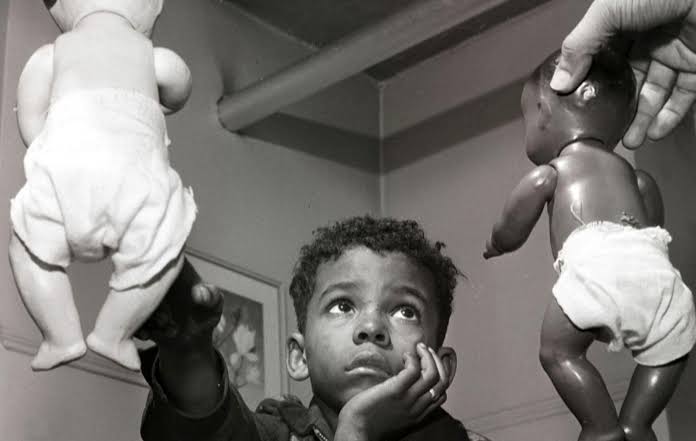Some of the Most Interesting Experiments Carried Out By Psychologists and Scientists #4
Experiments are among the only few ways left to know anything for sure or atleast get insurmountable evidence and or insane insights. All of these is simply because experiments carry out tests and make findings based on watching and experiencing a case study do what it does. Way more reliable than mere thoughts and untested opinions.
On going around reading non-fiction books where writers are trying to make their points like the book Originals: How Non-conformists Move the World by Adam Grant, Outliers: The Story of Success by Malcolm Gladwell, etc; one would come to find that they report and talk about a lot of experiments carried out by psychologists, they use them to show you what has been found through experiments and how these findings prove the point they're trying to make.
Some of the Most Interesting Experiments Carried Out By Psychologists and Scientists would be a series of posts reporting these experiments to you so you can benefit by learning some of the things the expert scientists now know for sure or atleast have evidence for and or insane insight. So welcome to the
Fourth Edition! 🎊
For this edition, I'll be reporting some experiments from Malcolm Gladwell's 2009 book What The Dog Saw: and Other Adventures. Enjoy
1
Creeping Determinism: People Like to Say "I Said It", "I Knew It" after an Outcome But the Truth is They Didn't Know Anything, Hindsight Makes you Feel Like a Boss

In page 171 Gladwell reports about an experiment carried out by psychologist Baruch Fischhoff where on the eve of Nixon's visit to China he asked a group to say what they think might happen if Nixon visits China whether Nixon would see Mao Tse-tung (the then leader of China), whether the visit would be a diplomatic success, etc.
At the end of the visit it turned out to be a diplomatic success, Fischhoff then went to those same people and asked them to recall their predictions, he found out that the subjects now 'overwhelmingly "remembered" being more optimistic than they had actually been'.
If you originally thought that it was unlikely that Nixon would meet with Mao, afterward, when the press was full of accounts of Nixon’s meeting with Mao, you’d “remember” that you had thought the chances of a meeting were pretty good. Fischhoff calls this phenomenon “creeping determinism” — the sense that grows on us, in retrospect, that what has happened was actually inevitable — and the chief effect of creeping determinism, he points out, is that it turns unexpected events into expected events. As he writes, “The occurrence of an event increases its reconstructed probability and makes it less surprising than it would have been had the original probability been remembered.”
That is, after something happens people tend to feel like they had premonitions or the feeling that that was going to happen, that they had seen the signs, but the truth that's only because they now have the privilege of hindsight. Before the outcome occurred predicting it was a lot harder.
2
Explicit and Implicit Learning: You Can Learn Something Subconsciously Without Being Aware You've Learnt It.
In page 181 Gladwell reports on an experiment usually carried out by psychologist to test motor skills. It is narrated by Daniel Willingham, a psychologist at the University of Virginia:
They'll sit you in front of a computer with 4 boxes on the screen and a keyboard with 4 corresponding buttons. Then one at a time 'x' begins appearing on the boxes on the screen and you're told to push one of the four buttons that corresponds with the box the x appeared on. The psychologist says:
if you’re told ahead of time about the pattern in which those x’s will appear, your reaction time in hitting the right key will improve dramatically. You’ll play the game very carefully for a few rounds, until you’ve learned the sequence, and then you’ll get faster and faster.
Willingham calls this explicit learning. But suppose you’re not told that the x’s appear in a regular sequence, and even after playing the game for a while, you’re not aware that there is a pattern. You’ll still get faster: you’ll learn the sequence unconsciously. Willingham calls that implicit learning — learning that takes place outside of awareness. These two learning systems are quite separate, based in different parts of the brain.
Willingham says that when you are first taught something — say, how to hit a backhand or an overhead forehand — you think it through in a very deliberate, mechanical manner. But as you get better, the implicit system takes over: you start to hit a backhand fluidly, without thinking.
The basal ganglia, where implicit learning partially resides, are concerned with force and timing, and when that system kicks in, you begin to develop touch and accuracy, the ability to hit a drop shot or place a serve at a hundred miles per hour. “This is something that is going to happen gradually,” Willingham says. “You hit several thousand forehands, after a while you may still be attending to it. But not very much. In the end, you don’t really notice what your hand is doing at all.”
3
Panic and Stress Causes What Psychologists Call Perceptual Narrowing.
In page 183, Gladwell reports that:
In one study, from the early seventies, a group of subjects were asked to perform a visual-acuity task while undergoing what they thought was a sixty-foot dive in a pressure chamber. At the same time, they were asked to push a button whenever they saw a small light flash on and off in their peripheral vision. The subjects in the pressure chamber had much higher heart rates than the control group, indicating that they were under stress. That stress didn’t affect their accuracy at the visual-acuity task, but they were only half as good as the control group at picking up the peripheral light.
A visual-acuity task is a test to determine your ability to recognize small details with accuracy. Gladwell didn't state what the task was, but the subjects were to carry out the task and at the same time they were to push a button when they saw that peripheral light flash. Those who were under pressure/stress were not able to identify the light and push the button whenever the light appeared but were able to finish their tests accurately. Meanwhile those not under stress finished the test accurately and were still able to identify the peripheral light twice better.
The finding is that stress makes one unable to do well at multitasking.
• (Find the first edition here)
• The second here
• And the Third

Roll with @nevies, I run a Humor, deeper thoughts and sex talk blog here on Hive🌚 Donate: BTC: bc1qlpu8rqftnn9r78dajpzf9p0ueqkvzdvzeayrtd ETH:0x7168800F3b7499A2dd32B4C8Ae0EFA0F68A93800 LTC: ltc1qx0r3nym5hpq6mxvfkl3dzs2ap455aefh9rjq07 
Posted using Proof of Brain



That´s a very cool series man! Such interesting experiments. Keep them coming! :)
@tipu curate
Upvoted 👌 (Mana: 0/46) Liquid rewards.
Sure thing, man. Thank you!